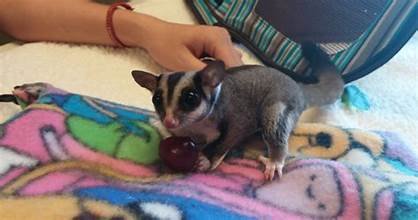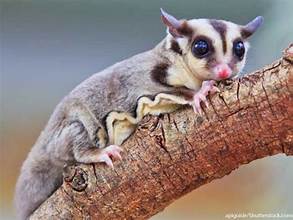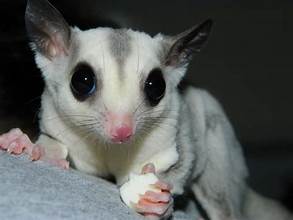Sugar gliders are adorable but require specialized care. Understanding their common health issues and finding a qualified veterinarian is essential for their well-being.
Common Health Issues in Sugar Gliders:
- Dental Problems:
Sugar gliders have continuously growing teeth that require proper wear and tear.
- Malocclusion:
Improper alignment of teeth can prevent them from wearing down naturally, leading to overgrowth and difficulty eating.
- Abscesses:
Dental abscesses can occur due to infection, causing pain, swelling, and difficulty eating.
Parasites:
- Internal:
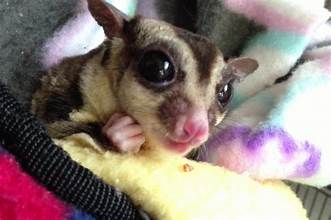
Roundworms, coccidia, and other parasites can cause digestive upset, weight loss, and even death.
- External:
Mites and fleas can cause severe itching, hair loss, and skin irritation.
- Nutritional Deficiencies:
Sugar gliders have specific dietary needs.
- Calcium Deficiency:
This can lead to metabolic bone disease, causing weakness, fractures, and deformities.
- Vitamin A Deficiency:
This can result in eye problems, respiratory issues, and poor growth.
- Hypoglycemia:
Low blood sugar can be a serious issue, especially in young or stressed gliders.
- Symptoms:
Lethargy, tremors, seizures, and even death.
Finding an Exotic Veterinarian:
Finding a veterinarian experienced with sugar gliders is crucial. Here’s how:
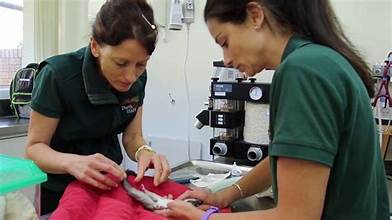
- Ask for Recommendations:
Contact local animal shelters, rescue organizations, and other sugar glider owners.
- Online Resources:
Use online directories and review sites to find qualified veterinarians.
- Contact Veterinary Schools:
Veterinary schools often have clinics caring for exotic animals.
- Interview Potential Veterinarians:
Ask about their experience with sugar gliders, their diagnostic and treatment options, and their approach to patient care.
Preventive Care:
- Regular Checkups:
Schedule regular checkups with your veterinarian, even if your glider appears healthy.
- Species-Appropriate Diet:
To keep your sugar glider healthy and happy, provide a balanced diet with protein, calcium, and other essential nutrients.
- Preventative Medications:
Discuss preventative medications for parasites with your veterinarian.
- Enrichment:
Provide plenty of mental and physical stimulation, such as climbing toys, foraging opportunities, and social interaction.
Remember: Early detection and treatment are key to managing health issues in sugar gliders. By being proactive and seeking the guidance of a qualified veterinarian, you can ensure a long and happy life for your furry friend.
Disclaimer:
Always consult a qualified veterinarian with questions or concerns about your pet’s health. Their expertise will provide you with the best care for your sugar glider.

